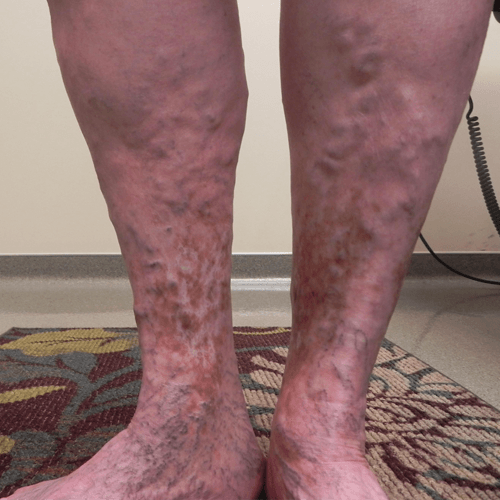Chronic Venous Insufficiency
What is venous insufficiency?
When blood does not flow normally through the veins in the leg toward the heart, chronic venous insufficiency (CVI) occurs. As the valves deteriorate, blood leaks or flows backward and pressure in the vein increases, causing chronic inflammation in the veins.
Who’s at risk for venous insufficiency?
Risk increases with age. Family history, a sedentary lifestyle and jobs that require long hours of standing are also risk factors.
What are the symptoms?
Early symptoms include swollen ankles, feet and calves. The swelling is usually accompanied by aching, cramping and heaviness in the legs. As the condition progresses, brown patches and hardening skin around the ankles can occur.
What treatments are available?
Treatments for venous insufficiency are aimed at reducing swelling and improving the return of blood to the heart. Elevation and exercise are two ways to increase circulation. For mild cases of chronic venous insufficiency, compression stocking treatment may be recommended. More serious cases of CVI may be treated with ultrasound guided sclerotherapy, or with surgical treatments such as endovenous ablation or vein stripping. The surgeons at Vein Care Specialists can guide you to the appropriate treatment after your initial consultation.

